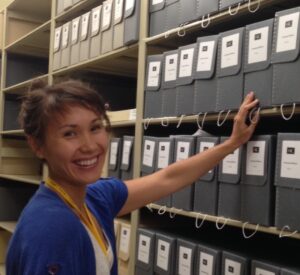The first platform evaluation is fast approaching, and the WebTex Subcommittee is in search of volunteers. The first platform to be evaluated will be Access to Memory (AtoM). If you’re interested in volunteering, we’d love your help! You can find out more by reading this blog post. ArchivesSpace and XTF are slated for evaluation in the spring.
In preparation for the upcoming platform evaluations, we have gathered some resources on each one. Additionally, we’ve gathered some basic resources on EAD.
The approach to finding resources began with the most easily located pages: the main websites for each of the platforms. The WebTex team also did some brief brainstorming on resources that we were already aware of, such as Yale’s blog on ArchivesSpace and SAA’s EAD documentation page. Links to wikis, GitHub, and other blogs were mined from these. Additionally, we performed Google keyword searches to locate more blog posts related to specific platforms, which led to more link mining and discovery of additional front-end interface examples.
We hoped to build a list that would help us and others learn more about each of the platforms and bolster preexisting EAD knowledge. However, the list is not comprehensive! Please feel free to share additional resources in the comments so that we can add them to the list. You can view the list of resources along with brief annotations on the Annotated Bibliography page.


